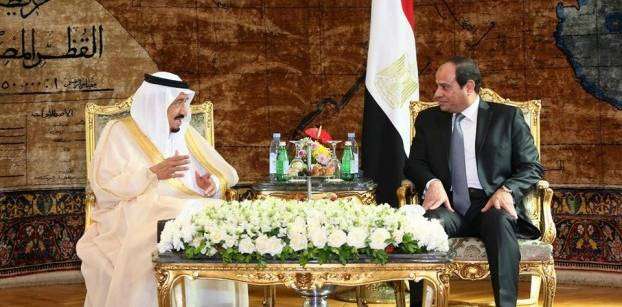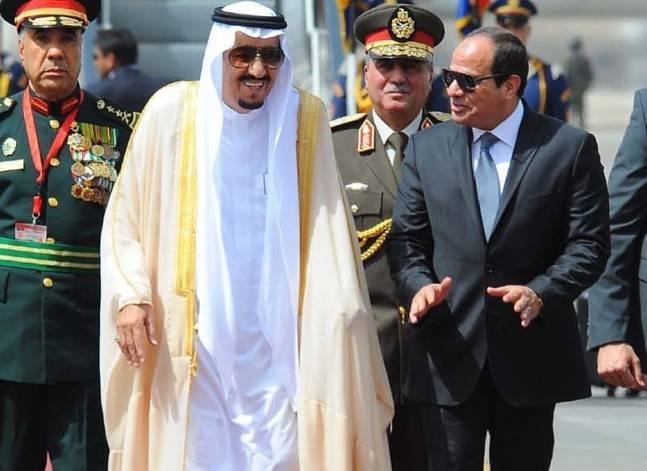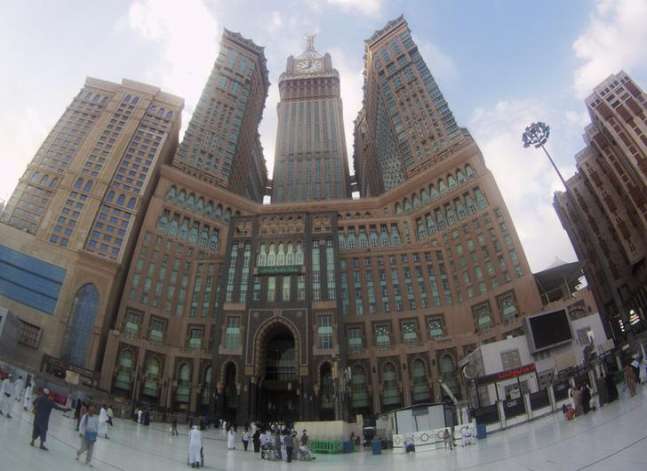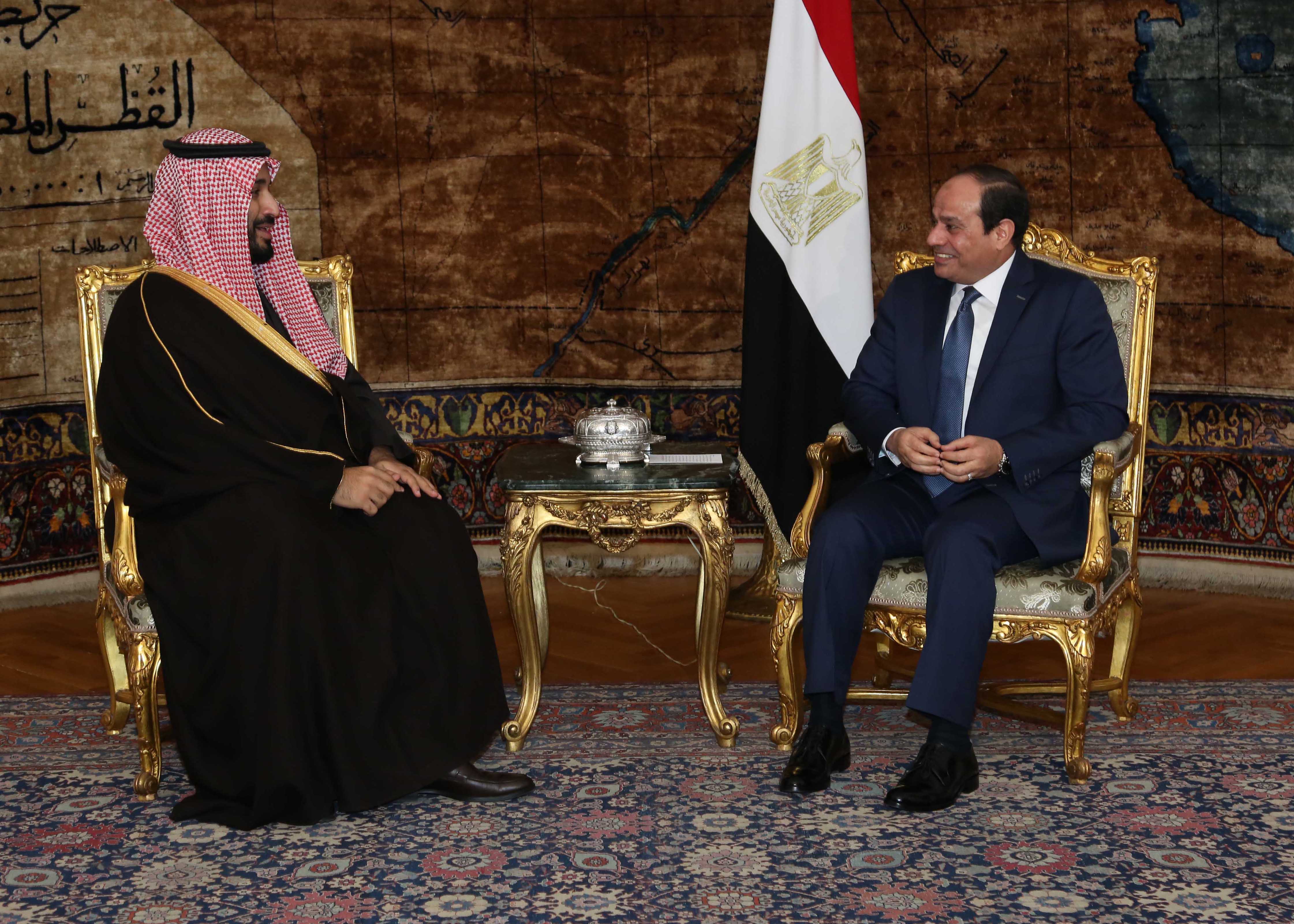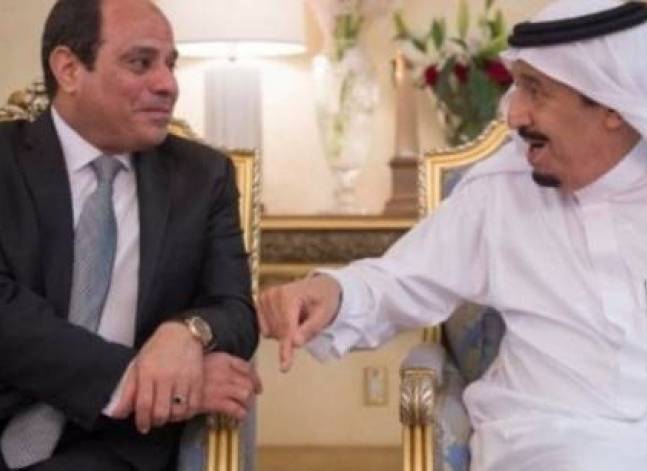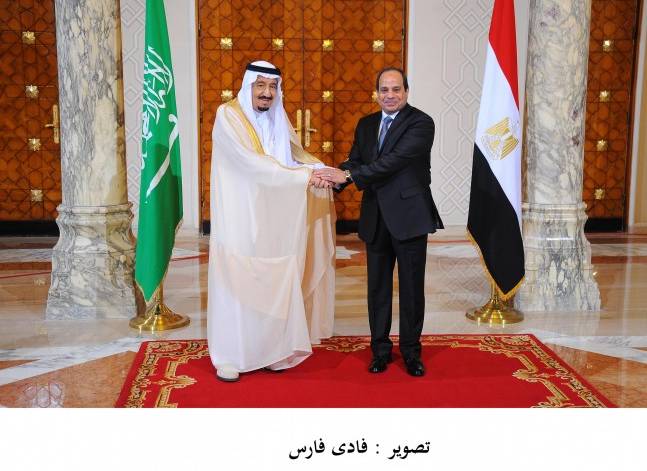Latest NEWS
- Aswat Masriya, the last word
- Roundup of Egypt's press headlines on March 15, 2017
- Roundup of Egypt's press headlines on March 14, 2017
- Former Egyptian President Hosni Mubarak to be released: lawyer
- Roundup of Egypt's press headlines on March 13, 2017
- Egypt's capital set to grow by half a million in 2017
- Egypt's wheat reserves to double with start of harvest -supply min
- Roundup of Egypt's press headlines on March 12, 2017
Addressing Egypt's parliament, Saudi King calls for cooperation against 'terror'
Egyptian President Abdel Fattah al-Sisi meets with Saudi King Salman bin Abdulaziz in Apr. 2016. Presidency handout.
CAIRO, Apr 10 (Aswat Masriya) - Speaking before Egypt's House of Representatives on Sunday, Saudi King Salman bin Abdel Aziz said that the two countries should cooperate to fight terror and resolve the region’s issues.
The Saudi King has been in Egypt since Thursday for a five-day visit, the first to the Egyptian capital since he was crowned early 2015.
In the televised speech, which he gave at Egypt's unicameral parliament, King Salman said terror should be countered through a comprehensive approach that deals with ideological, media and economic aspects, in addition to working together to establish a unified Arab military force.
The idea of a joint Arab force was announced by the Egypt's President Abdel Fattah al-Sisi in late March 2015 at the end of the 2015 Arab Summit, held in the Egyptian Red Sea resort of Sharm el-Sheikh.
Separately, in December 2015, Saudi Arabia announced launching an "Islamic military alliance" to fight terrorism, made up of 34 countries including Egypt, as well as countries that are not members of the Arab League such as Turkey and Pakistan.
During the past two days, President Abdel Fattah al-Sisi and the Saudi King signed agreements worth $25 billion with the aim of increasing cooperation between the two countries.
Egypt and Saudi Arabia also signed a maritime border agreement that has stipulating that the Red Sea islands of Tiran and Sanafir fall within Saudi Arabia's territorial waters, the Egyptian cabinet said in a statement on Saturday.
The Tiran Island is located in the Gulf of al-Aqaba , has a total area of about 80 square km and is about 5 or 6 km from the Sinai Peninsula. Sanafir Island lies to the east of Tiran with a total area of 33 square km.
The two islands are strategically significant as both islands control the maritime traffic from the Gulf of Aqaba, as they are both located at the mouth of the gulf and can close maritime activity in the direction of the gulf.
The signing of the agreement stirred controversy especially on social media, with many Egyptian social media users criticizing the agreement saying they believe the two islands belong to Egypt.
The cabinet said the agreement is an "achievement" and that it was reached after "long and hard work" throughout the past six years.
According to the cabinet, the agreement will be presented to the House of Representatives to discuss and ratify it.
Egypt has enjoyed the support of Saudi Arabia, as well as of Gulf neighbours Kuwait and the United Arab Emirates, since the military ouster of then-President Mohammed Mursi in July 2013 following mass protests against his rule.
Last December, Saudi Arabia said it will raise its investments in Egypt to above 30 billion Saudi riyals ($8 billion) and pledged to contribute to providing Egypt with petroleum needs for the next five years. Earlier, in March 2015, Saudi Arabia pledged $4 billion in investments in and assistance for Egypt.
Salman's visit to Egypt defies pessimism expressed by several analysts over the two countries relations, with Riyadh purportedly losing patience with Egypt’s inability to make the best use of Saudi financial support.

